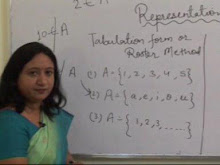-->
Relevance of National Mathematical Year
To encourage and facilitate the study of mathematics as an academic discipline in the country, the Prime Minister Manmohan Singh declared the year 2012 as a ‘National Mathematical Year’ as a tribute to maths wizard Srinivasa Ramanujan and also declared December 22, the birthday of Ramanujan, as 'National Mathematics Day'. Prime Minister expressed concern over dwindling interest in mathematics and subject experts and emphasized on mathematical research.
Mathematics in some form or other has been used since the early age of human civilization. But its use in today’s world has assumed great importance, since without its application higher technology cannot be mastered and harnessed for increasing production of goods and services and promoting human welfare. Technology generally follows the advancement of science which is also vitally dependent on the use of Mathematics. Over the centuries there has been spectacular progress in the development of Mathematics as a branch of knowledge. And without the application of Mathematics on a wide scale no country can march forward in line with the general progress of human knowledge and thought. Therefore learning of Mathematics and promoting the horizon of knowledge by advanced researches in Mathematics should be over emphasized.The importance of Mathematics in India can be seen by a well known verse in Sanskrit of ‘Vedang Jyotish’ (written 1000 BC) as:
यथा शिखा मयूराणां , नागानां मणयो यथा तद्वद् वेदाङ्ग शास्त्राणां, गणितं मुर्धिनं वर्तते ॥
"As the crown on the head of a peacock, and as the gem on the hood of a snake,so stands Mathematics crowned above all disciplines of knowledge." This fact was well known to intellectuals of India that is why they gave special importance to the development of Mathematics, right from the beginning. Indian mathematicians made great strides in developing arithmetic, algebra, geometry, infinite series expansions and calculus. The oldest evidence of mathematical knowledge to Indians is being found in Indus Valley Civilization. The metallic seals found in the excavations of Mohan-Jo-Daro and Harappa indicates that the people of this civilization had the knowledge of numbers. It is also clear from the pottery and other archaeological remains that they had the knowledge of measurement and Geometry even in crude form. Indian works, through a variety of translations, have had significant influence throughout the world.
But unfortunately our students do not know even about the famous names of Indian mathematics. They are unaware about the contribution of Āryabhata in place value number system, the geometrical concepts given by Brahmagupta , the fundamental work of Bhaskarachrya on arithmetic, the currently used method of calculating the Least Common Multiple (LCM) of given numbers in Ganita-sāra-sańgraha of Mahāvīrācārya, Ramanujan’s extraordinary contributions to mathematical analysis, number theory, infinite series and continued fractions.
The present mathematical knowledge has not dropped as a bolt from the blue, nor a product of some magical tricks. The apparently ready-made knowledge and results have been achieved after centuries of efforts, often painful, by hundreds of Mathematicians and Historians through the ages. Lot of discoveries and inventers contributed to the fruits, facilities and luxuries which we enjoy today were the contribution of Indian mathematicians. From the notion of zero to the modern concept of computational number theory, cryptography and fuzzy set theory, their contribution is significant.
Kim Plofker from Netherlands says that “Indian mathematical science is extremely important and has a significant effect on the world’s knowledge as it is today. The lack of available resources has kept us under informed about the developments that have taken place in India.” It is the need of the hour to carry forward the legacy of great mathematicians so as to encourage and nurture the glorious tradition of the country in mathematics.
The country needs to produce more mathematicians of the caliber of Ramanujan to become a knowledge superpower in the world.In the published curriculum development report of University Grant Commission in 1989, it was suggested that History of Mathematics should be a part of curriculum to make the subject interesting. But nothing has been done in this reference. I strongly believe that student must know the process and development of mathematical thinking, formulae and its principles. If one knows the process of developing mathematical model, can not be frustrated at any stage.


1 comment:
You will like to refer the below post
http://dr-chetan-bhatt.blogspot.in/2010/10/ancient-indian-mathematics.html
Post a Comment